Programme
Georg Friedrich Händel
The Messiah, oratorio for soloists, choir and orchestra, HWV 56
(the programme includes a break of 20 min)
The British conductor and harpsichordist Nicholas Kraemer is coming as part of our ongoing cooperation with specialists in the early music repertoire and at the recommendation of Simon Rattle. His performance of Handel’s oratorio Messiah with leading British soloists and the Prague Philharmonic Choir will be one of the season’s highlights.
Subscription series C | Duration of the programme 2 hours 45 minutes
Georg Friedrich Händel
The Messiah, oratorio for soloists, choir and orchestra, HWV 56
(the programme includes a break of 20 min)
Carolyn Sampson soprano
Helen Charlston alto
Andrew Staples tenor
Matthew Brook bass
Prague Philharmonic Choir
Lukáš Vasilek choirmaster
Nicholas Kraemer conductor
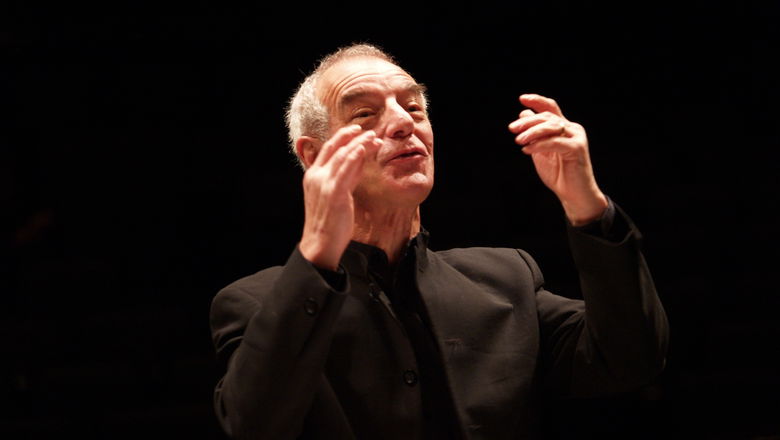
Carolyn Sampson soprano
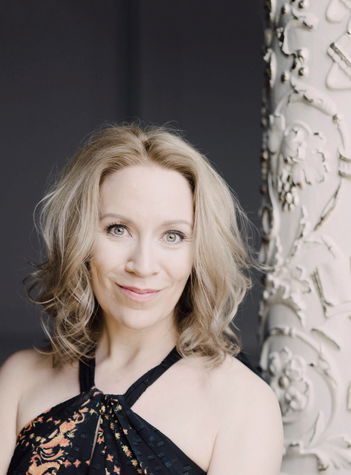
Equally at home on the concert and opera stages, Carolyn Sampson has enjoyed notable successes in the UK as well as throughout Europe and the US.
On the opera stage her roles have included the title role in Semele and Pamina in The Magic Flute for English National Opera, various roles in Purcell’s The Fairy Queen for Glyndebourne Festival Opera (released on DVD) and both Anne Truelove The Rake’s Progress and Mélisande Pelléas et Mélisande in Sir David McVicar’s productions for Scottish Opera. Internationally she has appeared at Opéra de Paris, Opéra de Lille, Opéra de Montpellier and Opéra National du Rhin. She also sang the title role in Lully’s Psyché for the Boston Early Music Festival, which was released on CD and was subsequently nominated for a Grammy.
Carolyn’s numerous concert engagements in the UK have included regular appearances at the BBC Proms; in Europe her many appearances have included concerts with Bergen Philharmonic, Freiburger Barockorchester, Orchestra dell’Accademia Nazionale di Santa Cecilia, Royal Concertgebouw Orchestra; in the US Carolyn has featured as soloist with the Boston, Cincinnati, Detroit, and San Francisco Symphonies among others.
A consummate recitalist, Carolyn Sampson appears regularly at the Wigmore Hall where she was a “featured artist” in the 14/15 season. Carolyn has developed a partnership with the pianist Joseph Middleton over recent years. Her debut song recital disc with Joseph, ‘Fleurs’, was released early in 2015 featuring songs by composers from Purcell to Britten, and was nominated in the solo vocal category of the Gramophone Awards. Since then they have gone on to release various CDs, most recently ‘The Contrast – English Poetry in Song’.
Alongside her longstanding relationship with the BIS label she has released multi award-winning discs for Decca, Harmonia Mundi, and Hyperion, receiving accolades including the Choc de l’Année Classica, Gramophone Magazine Editor’s Choice, BBC Music Magazine’s “Record of the Month”, an ECHO Award, and a Diapason D’or.
Helen Charlston alto
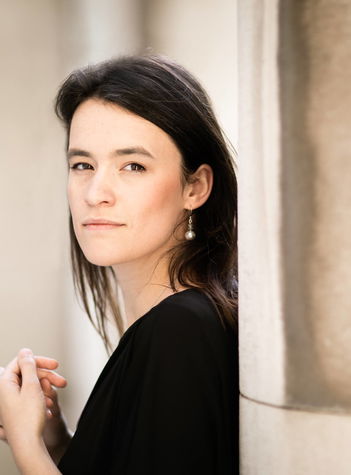
Since winning the London Handel Singing Competition in 2018, Helen Charlston has crafted a place for herself at the forefront of the classical music scene in the UK and abroad. A founder participant of the Rising Star of the Enlightenment programme, she regularly works alongside the Orchestra of the Age of Enlightenment, appearing in their film version of Dido’s Lament inspired by Coldplay’s iconic video of ‘The Scientist’. She is a BBC New Generation Artist (2021‒2023), was a member of Le Jardin des Voix academy with Les Arts Florissants in 2021‒2022 and won the Loveday Song Prize at the 2021 Kathleen Ferrier Awards. In July 2022, Helen was announced as one of Classic FM’s Rising Stars (30 under 30).
Last season, Helen sang the title role in Dido & Aeneas with William Christie in Versailles, and Sorceress/Spirit in the same piece at The Grange Festival, Handel’s Israel in Egypt with the Scottish Chamber Orchestra and the role of Irene Theodora with the Philharmonia Baroque in San Francisco, both with Richard Egarr, and Handel’s Judas Maccabaeus with the RIAS Kammerchor at the Berlin Philharmonie with Justin Doyle.
This season, she returns to the Scottish Chamber Orchestra for Bach’s B minor Mass, tours the St John Passion with Les Arts Florissants in Asia, Handel’s Messiah with the Warsaw Philharmonic Orchestra, Monteverdi Vespers in Geneva, and Mozart’s Vesperae solennes de confessore & Coronation Mass with the Handel & Haydn Society in Boston.
Helen made her BBC Proms debut in 2022 and performs Mendelssohn’s Elijah at the 2023 Proms. An avid recitalist she has given performances at Wigmore Hall, the Concertgebouw Amsterdam, Leeds Lieder and Cheltenham Festival.
In 2022, Delphian Records released her second solo album, Battle Cry: She Speaks with Toby Carr for which she won the vocal award at the BBC Music Magazine Awards.
Andrew Staples tenor
Andrew Staples is considered one of the most versatile tenors of his generation, appearing regularly with Sir Simon Rattle, Daniel Harding, Esa-Pekka Salonen, Yannick Nézet-Séguin, with the Berlin Philharmonic, Vienna Philharmonic, Swedish Radio Orchestra, Orchestre de Paris, London Symphony Orchestra.
He made his debut at the Royal Opera House with Fidelio (Jacquino), returning with Katya Kabanova (Tichon) and Salome (Narraboth). His recent and future performances include, Mahler: Das Lied von der Erde (Chamber Orchestra of Europe), Britten: Peter Grimes (Teatro La Fenice), Turn of the Screw (Budapest Festival Orchestra), Elgar: The Dream of Gerontius (Royal Scottish National Orchestra), Haydn: The Creation (Scottish Chamber Orchestra), Berlioz: Roméo et Juliette (Orchestre Philharmonique de Radio France), Handel: Jephtha (Komische Oper Berlin), Mozart: Idomeneo (Deutsche Staatsoper Berlin).
His creative output includes concert and opera singing, directing opera, filmmaking and photography.
Matthew Brook bass
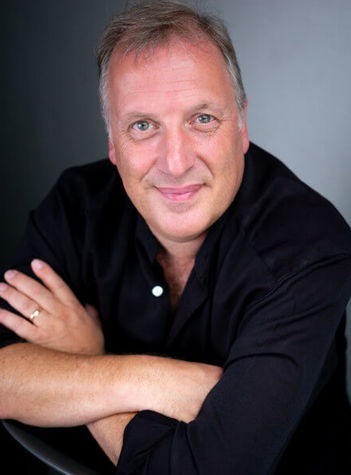
Matthew Brook is known for his honest and open portrayal of characters whether on the opera or concert stage. He leapt to fame with his 2007 Gramophone Award-winning recording of Handel’s Messiah with the Dunedin Consort, followed by equally critically acclaimed recordings of Acis and Galatea and St Matthew Passion. He has appeared as a soloist throughout Europe, Australia, North and South America and the Far East, and has worked with many of the world’s leading conductors. He has developed a world-wide reputation for his interpretation of the music of J. S Bach and G. F. Handel but his musical tastes stretch far beyond this, often performing new commissions.
In 2023 Matthew made his Opéra national de Paris debut performing the role of Il Re di Scozia in a new Robert Carsen production of Ariodante under Harry Bicket. He has performed roles at Staatstheater Stuttgart, Opéra Comique, Göttingen International Handel Festival, The Grand Théâtre de Luxembourg and at the Maggio Musicale Fiorentino. Recent highlights include the role of Aeneas in the world premiere of Errollyn Wallen’s Dido’s Ghost co-commissioned by the Dunedin Consort with the Barbican Centre, Edinburgh International Festival, Buxton International Festival and Philharmonia Baroque Orchestra & Chorale, a return to the Edinburgh International Festival for a special performance of Mozart’s Die Zauberflöte with Maxim Emelyanchev and the SCO, and Beethoven’s Ninth Symphony with the Royal Philharmonic under Vasily Petrenko.
Future recording releases will include a new recording of Handel’s Messiah with John Nelson, the English Concert and Choir and a recording of Purcell’s Dido and Aeneas with David Bates and La Nuova Musica.
This season, Matthew makes his debut with Opera North in David Poutney’s “Masque of Might”, music by Purcell, conducted by Harry Bicket, returns to Grange Park Opera, and gives performances with the Czech Philharmonic, Rotterdam Philharmonic, Philharmonia Baroque, Handel and Haydn Society Boston and closer to home with the Academy of Ancient Music, English Concert, Dunedin Consort, The Hallé and Royal Northern Sinfonia to name a few.
Prague Philharmonic Choir
The Prague Philharmonic Choir (PPC), founded in 1935 by the choirmaster Jan Kühn, is the oldest professional mixed choir in the Czech Republic. Their current choirmaster and artistic director is Lukáš Vasilek, and the second choirmaster is Lukáš Kozubík.
The choir has earned the highest acclaim in the oratorio and cantata repertoire, performing with the world’s most famous orchestras. In this country, they collaborate regularly with the Czech Philharmonic and the Prague Philharmonia. They also perform opera as the choir-in-residence of the opera festival in Bregenz, Austria.
Programmes focusing mainly on difficult, lesser-known works of the choral repertoire. For voice students, they are organising the Academy of Choral Singing, and for young children there is a cycle of educational concerts.
The choir has been honoured with the 2018 Classic Prague Award and the 2022 Antonín Dvořák Prize.
Lukáš Vasilek choirmaster
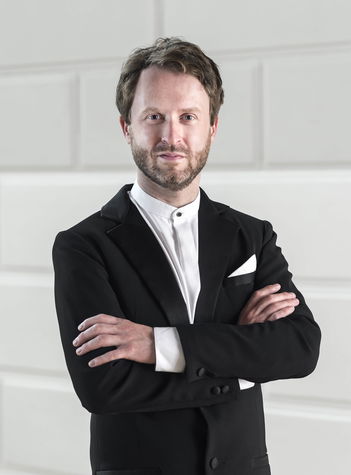
Lukáš Vasilek studied conducting and musicology. Since 2007, he has been the chief choirmaster of the Prague Philharmonic Choir (PPC). Most of his artistic work with the choir consists of rehearsing and performing the a cappella repertoire and preparing the choir to perform in large-scale cantatas, oratorios, and operatic projects, during which he collaborates with world-famous conductors and orchestras (such as the Berlin Philharmonic, the Czech Philharmonic, the Israel Philharmonic, and the Saint Petersburg Philharmonic).
Besides leading the PPC, he also engages in other artistic activities, especially in collaboration with the vocal ensemble Martinů Voices, which he founded in 2010. As a conductor or choirmaster, his name appears on a large number of recordings that the PPC have made for important international labels (Decca Classics, Supraphon); in recent years, he has been devoting himself systematically to the recording of Bohuslav Martinů’s choral music. His recordings have received extraordinary acclaim abroad and have earned honours including awards from the prestigious journals Gramophone, BBC Music Magazine, and Diapason.
Nicholas Kraemer conductor
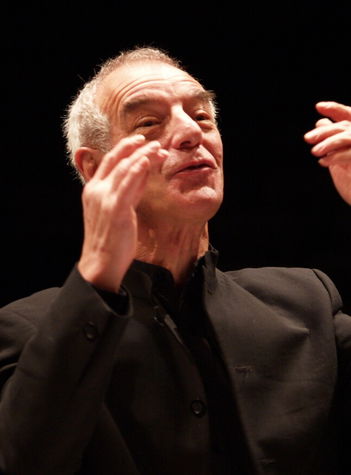
Nicholas Kraemer, a pioneer of historically informed interpretation and now the chief guest conductor of the Chicago-based orchestra Music of the Baroque, has earned an international reputation for leading ensembles specialising in early music. He guest conducts modern orchestras as well (especially in the USA and the UK, but also with the Berlin Philharmonic, for example), putting his knowledge of informed interpretation to use. Although music of the Baroque is his main specialisation, his repertoire spans from Monteverdi to the present.
He began his career as a harpsichordist, but he soon changed over to playing basso continuous in front of an orchestra. He conducts from the harpsichord to this day, as the Prague public witnessed in January 2024 at his Czech Philharmonic debut. He bases his carefully considered interpretations on historical knowledge of great depth, as he demonstrated in one of the mainstays of his broad repertoire, Handel’s oratorio Messiah. The performance’s authenticity and its lively character were appreciated by the audience, and a critic called Kraemer’s concert one of the season’s highpoints.
Georg Friedrich Händel
Messiah, oratorio for solo voices, choir, and orchestra, HWV 56
One of the greatest and most prolific composers of the Baroque era and actually of all of music history, George Frideric Handel was born in Halle, Germany. Paradoxically, as a master of opera and sacred music, he did not write many compositions with German texts. He lived at a time when operas were being composed exclusively in Italian, and in London, his adopted home, the English language was cultivated in the music of the Church of England. Handel arrived in England when he was 27 years old, and he died there at age 74 as a respected and honoured “English” artist. He won popularity with the locals for the quality of his compositions in general and especially for his sacred works that tied in with the tradition of local composers of the 16th and 17th centuries. With texts in the English language, the compositions emphasised choral numbers or were purely choral works. It was along these lines that he created, above all, the series of oratorios that remain famous to this day (Messiah, Judas Maccabeus, Israel in Egypt, etc.). His oeuvre also contains a very large number of anthems – liturgical choral compositions in the manner of a motet or cantata, a tradition of which had been maintained in England as far back as the High Renaissance, and especially in the works of Henry Purcell. Since Purcell’s day, England had not had another great composer until Handel arrived.
Today, Messiah is by far the most frequently performed of Handel’s oratorios. Only a workaholic combined with a genius could have written such a vast work in just 24 days. Composing at a breakneck speed was normal for George Frideric Handel – he wrote all his great oratorios and operas in just a few weeks, and the pauses between them were not long. The only thing that could slow down his composing was the hectic pace of seasons when his works were being performed.
In 1741, when the story of the “oratorio of all oratorios” begins, Handel had been in London for 30 years. He already had many successes to his credit. In the field of Italian opera, those successes alternated with flops caused by cutthroat competition between London’s several opera companies. However, when it comes to sacred music and especially the oratorio, Handel can be said to have been constantly enormously popular with the London public. Many accounts have been preserved of the triumphs of his works and of commissions from influential persons beginning with the king.
When England became embroiled in a war, it ceased to be a favourable place for artistic activity, and when Handel was facing one of the failures of his opera company, he was invited to visit Dublin, Ireland, by the Lord Lieutenant of Ireland William Cavendish, 3rd Duke of Devonshire. Among other things, Handel wished to present himself there with a new work. His friend and supporter, the man of letters, critic, and arts patron Charles Jennens (1700–1773), who had already written the libretto for Handel’s oratorio Saul and had compiled biblical texts for the oratorio Israel in Egypt, prepared another collection of biblical texts suitable for performing during Holy Week. Handel initially hesitated to begin work on the musical setting, but then he became completely absorbed by his work. He received the text for the oratorio on 10 July, and he wrote the music between 22 August and 14 September 1741. The original score, 259 pages long, shows signs of haste and contains errors of notation, but there are not that many considering the length of the composition.
The title Messiah comes from a word in Hebrew that means “the anointed one”, and in old Christian translations of the Jewish scriptures, it is associated with Christ. In the text of the oratorio, the story of the entire life of Christ is told from his birth to his ministry and on to his suffering, death, resurrection, and ascension. As its foundation, the work employs Old Testament texts and especially excerpts from the prophet Isaiah and the Book of Psalms. The two best-known choruses take their content from the New Testament book The Revelation of St John.
The accompaniment is written for a typical orchestra of Handel’s day – mostly strings, a few woodwinds, even fewer brass, and timpani. The composer was not even expecting an especially large chorus. It was not until after his death, and especially in the 19th and even 20th centuries, that there were monumental performances with oversized orchestras and choruses. The most famous number of the whole work is the “Hallelujah!” chorus (Part II, Scene 7, No. 44), in which the choral writing initially emphasises unison passages, then gradually becomes more polyphonic, introducing fugato entrances. Other choruses combine homophonic and polyphonic writing, such as “For Unto Us a Child Is Born” (Part I, Scene 3, No. 12), “All We Like Sheep” (Part II, Scene 1, No. 26), and the oratorio’s concluding chorus “Worthy Is the Lamb” (Part III, Scene 4, No. 53).
Händel arrived in Dublin in November 1741 to give a series of subscription concerts in a new concert hall. At the same time, he was still working on small revisions of Messiah and preparing everything required for the April performance. Meanwhile, he faced the unwillingness of the Dean of St Patrick’s Cathedral to permit the local chorus to perform in the oratorio. That dean was Jonathan Swift, the author and Anglican priest whose writings included the fanciful book Gulliver’s Travels. In the end, Swift allowed the singers to take part.
The oratorio’s premiere was promoted in the Dublin Journal on 27 March 1742: “For Relief of the Prisoners in the several Gaols, and for the Support of Mercer’s Hospital in Stephen’s Street, and of the Charitable Infirmary on the Inns Quay, on Monday the 12th of April will be performed at the Musick Hall in Fishamble Street Mr. Handel’s new Grand Oratorio call’d the MESSIAH, in which the Gentlemen of the Choirs of both Cathedrals will assist, with some Concertos on the Organ by Mr. Handel.” This was usual – during intermissions, Handel performed the solo parts in his concertos for organ and orchestra to keep the public from getting bored. The Dublin performance was a great success, as is documented by the critics in the local press. The venue with capacity for an audience of 700 was completely full; the ladies were asked not to wear hoops in their skirts, and the gentlemen were asked to leave their swords at home so more people could fit inside.
Upon returning to London, Handel decided that thenceforth he would devote himself exclusively to writing oratorios. He wrote Samson based on Milton’s poetry as well as the supremely dramatic oratorios Belshazzar and Hercules. To support the fight against Charles Edward Stuart (“Bonnie Prince Charlie”), Handel wrote the rousing Occasional Oratorio, and in celebration of victory at the Battle of Culloden, he gave a performance of Judas Maccabeus. He also attempted to offer Messiah to the Londoners. The Puritans, having already condemned Israel in Egypt on the grounds that the words of the Bible have no place in a secular theatre as an evening entertainment, were again issuing warnings in the press; some even accused Handel of blasphemy. It may have been why Messiah was first performed in London as a “New Sacred Oratorio” and not under its actual title. It was heard on 19 March 1743, then again in 1745 and 1749. It was not until 1750 that Handel began the tradition of yearly performances of Messiah under its real title at the end of Lent or during the Easter season. In Dublin, by contrast, the tradition arose of performing Messiah during Advent.
Handel’s Messiah followed the composer until the end of his life – it was the last work he conducted as a blind, ailing man just eight days before his death. He also made frequent revisions, especially to the arias. The work has a special standing among his oratorios. Although many people regard it as a typical Handel oratorio, in reality it stands apart from its category. Because of its lack of concrete dramatic action, it can be characterised as an epic oratorio, intended for pious reflection and for the encouragement of faith.